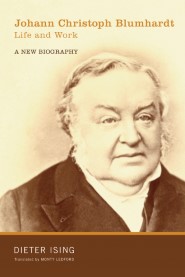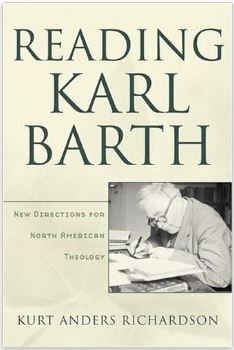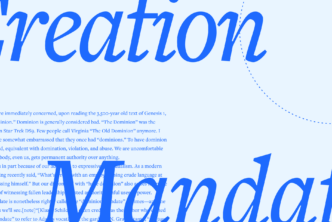In the last piece I presented Karl Barth’s ideas regarding revelation, the nature of the Word of God (both in its three-fold manifestations as well as its dual nature) and looking at the text christologically not christomonistically.
In this article, I offer a brief review of Evangelical scholarship’s critiques of Barth’s ideas in anticipation of presenting arguments made against Barth’s positions in a fair and even way.
Inerrancy and Infallibility
The evangelical response to Barth has been less than favorable.1 While some (such as Ramm, Bromiley, McCormack, and Morrison) have come to appreciate what Barth has brought to the table, many more continue to criticize him over what they consider serious problems for bibliology.
The first and most popular issue most evangelicals take with Barth is his obvious denial of biblical inerrancy and infallibility. In fact in his book The Erosion of Inerrancy in Evangelicalism, Beale admits that one of the reasons he felt it necessary to write his book was because of how much Barth’s influence on evangelical bibliology has grown over the last twenty years or so.2 In fact, Beale seems to feel that Barth’s concept of revelation is so dangerous that in the end of his book he creates a special appendix in which he actually quotes from places in Barth’s Church Dogmatics where he denies biblical inerrancy and infallibility.3 D. A. Carson and John D. Woodbridge also deal with the issue of Barth’s doctrine of fallibility but they do it a little differently. Instead of quoting Barth’s statements they in affect attack his reasoning for a fallible witness by writing,
To appeal to the ‘humanness’ of Scripture in this regard is a methodologically suspect step, for if ‘to err is human,’ so also would it be true to say that ‘to deceive is human.’ The humanness of Scripture, by Scripture’s own attestation, does not consist in deceit or error, and the participation of God in the inscipturation of the biblical revelation positively rules out such as approach.4
It is understandable and logical for Carson and Woodbridge to make this rebuttal of Barth, however, Ramm clarified Barth’s position as not stating this but instead stating that it is a matter of fact (reality) not a matter of nature. This however seems to be convenient to Carson and Woodbridge and it is more than likely appropriate to side with their caution. While this does not mean that their argument bears enough weight as to absolve Barth’s formula (as will be interacted with later) it is enough to call it into question.
Other theologians also deal with the importance of inerrancy and claim that if the doctrine of inerrancy were to be eliminated it would, in effect, take the whole of Christian faith with it.5 Burk brings up N. T. Wright as an example of a person with an extremely high view of Scripture while not holding to the inerrancy and infallibility of the Scriptures but makes it appear as if this instance is something occasional not normative.6 Most evangelicals seem to be in agreement with the thought that to void inerrancy as a legitimate description of the Scripture’s traits is to also delegitimize Christian faith as a whole.
Encounter
Another issue that evangelicals appear to have with Barth is his understanding of encounter. Hughes accuses Barth of being inconsistent in his tenants of faith. While he acknowledges that Barth stands against liberalism and rationalism he himself appears to adopt an existentialist subjectivity in describing Scripture’s “becoming” in encounter with the Word of God.7 Hughes, a couple pages later, however does admit that an “encounter” with the text through study and hearing the Word proclaimed does and can occur, but states that this occurs differently than the way in which Barth understands it. For Barth this encounter appears to be entirely personal and completely incapable of creating a consistent orthodoxy via the scriptures since these encounters are being commissioned through a fallible Bible.8
Propositional Truth
J.I. Packer also interacts with Barth but in a surprising and at times confusing way. Packer appears to contradict himself by at first writing that Barth absolutely denies, “revealed general principles.”9 What is interesting about this statement is that earlier Packer wrote, “For these, no less than their propositional statements of fact, are revelations of God from God by God- to echo a famous formula from Karl Barth.”10 The question at hand then becomes, “How can Barth both deny general principles of truth within the text if he himself developed a formula by which to explain propositional truth?” It appears here that Packer is confused regarding whether or not Barth claims Scripture can “say” anything true of God.
Packer also levels the charge of christomonism in his reading of Scripture. This is a serious charge for Packer to be making as it charges Barth with heresy on a fundamental level. It should be stated here that Packer is completely off base in this accusation. If Barth is christomonistic in his hermeneutic and understanding of the Scriptures than the same charge could be leveled against the apostles Matthew, Paul, and John as well as Augustine, Luther, and Calvin.
Keep Reading
Karl Barth’s Doctrine of the Word of God: Part 1 of 3
Assessing Barth’s Evangelical Interlocutors: Part 3 of 3
- Brandon J. O’Brien, “Theologian of the Word of God?: Reception of Barth’s View of Revelation in North American and Britain, 1945-1962,” Trinity Journal 32, no. 1 (Spring 2011): 32.
- G. K. Beale, The Erosion of Inerrancy in Evangelicalism: Responding to New Challenges to Biblical Authority (Wheaton, IL: Crossway, 2008), 20.
- Ibid., 281-283. Completed separated from it proper context which obviously makes the words of Barth look more damning than they actually are.
- D. A. Carson and John D. Woodbridge, eds., Scripture and Truth (Grand Rapids, MI: Baker Book House, 1992), 11.
- Denny R. Burk, “Is Inerrancy Sufficient? A Plea to Biblical Scholars Concerning the Authority and Sufficiency of Scripture,” Southwestern Journal of Theology 50, no. 1 (Fall 2007): 81. It is interesting to note here that Burk brings up both Ehrman and Olsen but only appears to make Ehrman’s abandonment of the faith normative while considering Olsen’s to be occasional.
- Ibid., 82.
- Philip Edgcumbe Hughes, “The Truth of Scripture and the Problem of Historical Relativity,” in Scripture and Truth, ed. D. A. Carson and John D. Woodbridge (Grand Rapids, MI: Baker Book House, 1992), 178.
- Ibid., 182.
- J. I. Packer, “Infallible Scripture and the Role of Hermeneutics,” in Scripture and Truth, D. A. Carson and John D. Woodbridge (Grand Rapids, MI: Baker Book House, 1992), 351.
- Ibid., 335.









